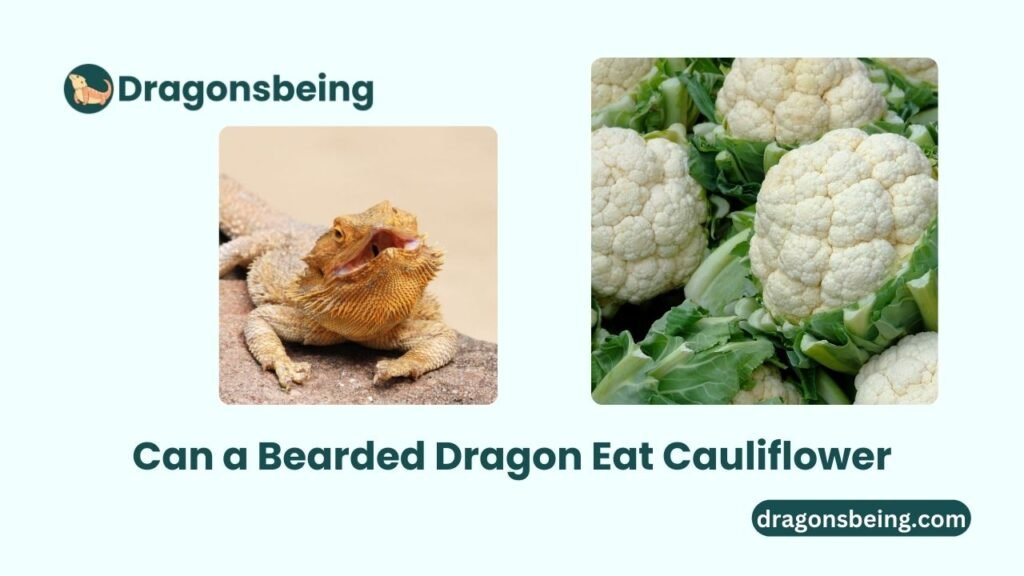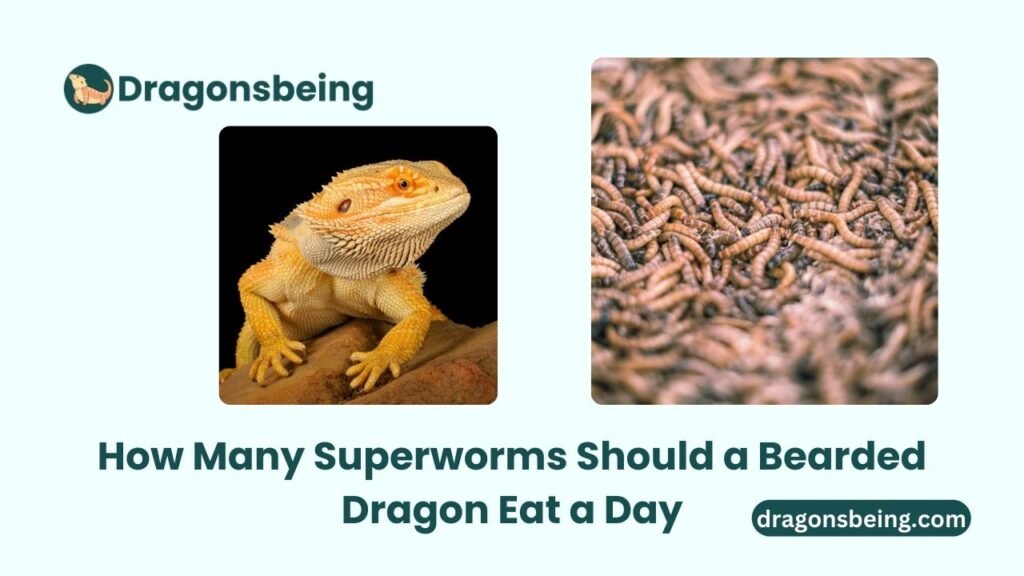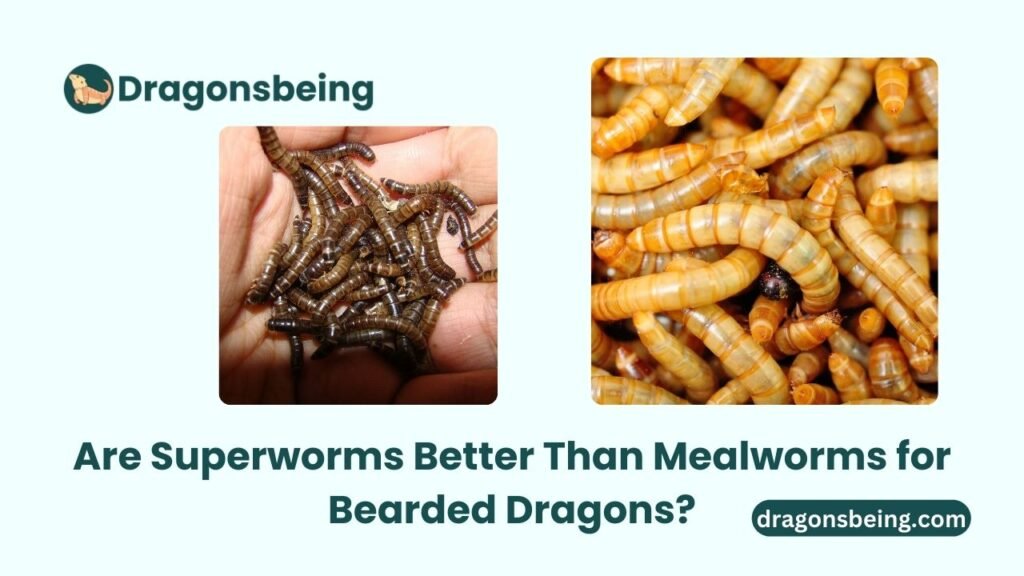Yes, bearded dragons can eat cauliflower, but it should be offered in moderation. This vegetable is not a staple in their diet and lacks essential nutrients.
Bearded dragons are popular pets known for their unique dietary needs. A balanced diet is crucial for their health and well-being.
While leafy greens and insects make up the bulk of their meals, occasional vegetables like cauliflower can provide variety.
Cauliflower contains vitamins and minerals, but it is not as nutritionally dense as other options. Overfeeding cauliflower can lead to digestive issues.
Always chop it into small pieces to prevent choking. Understanding the right foods for your bearded dragon helps ensure they thrive and stay active. Make informed choices about their diet for optimal health.
The Nutritional Profile Of Cauliflower
Cauliflower is a popular vegetable known for its unique taste. It offers various nutrients beneficial for many creatures, including bearded dragons. Understanding its nutritional profile helps in making informed decisions about your pet’s diet.
Vitamins And Minerals
Cauliflower is rich in essential vitamins and minerals. Here’s a quick look at what it provides:
| Nutrient | Amount per 100g |
|---|---|
| Vitamin C | 48 mg |
| Vitamin K | 15.5 mcg |
| Folate | 57 mcg |
| Potassium | 299 mg |
| Calcium | 22 mg |
These nutrients support overall health. Vitamin C boosts the immune system. Vitamin K aids in bone health. Folate is vital for cell function.
Potential Risks
While cauliflower has benefits, it may pose risks for bearded dragons. Consider these points:
- High Oxalate Levels: Cauliflower contains oxalates. These can bind with calcium.
- Digestive Issues: Some dragons might struggle to digest cauliflower.
- Moderation is Key: Too much cauliflower can lead to health problems.
Always introduce new foods slowly. Monitor your dragon for any adverse reactions. Consult a vet for tailored advice on your pet’s diet.
Can Bearded Dragons Eat Cauliflower?
Bearded dragons can eat cauliflower, but moderation is key. This vegetable offers vitamins and minerals. However, too much can cause health issues.
Frequency And Quantity
How often should you feed cauliflower to your bearded dragon? Here’s a simple guide:
| Age Group | Frequency | Quantity |
|---|---|---|
| Juveniles | Once a month | 1 small piece |
| Adults | Once every two weeks | 2-3 small florets |
Too much cauliflower can lead to digestive problems. Always balance it with other vegetables.
Preparation Tips
Proper preparation ensures your bearded dragon enjoys cauliflower safely. Follow these steps:
- Wash the cauliflower thoroughly.
- Cut it into small, bite-sized pieces.
- Steam it lightly to soften the texture.
- Allow it to cool before serving.
Never add salt or seasoning. These can harm your pet.
Offer cauliflower alongside leafy greens and other veggies. This provides a balanced diet.
Benefits Of Cauliflower In A Bearded Dragon’s Diet
Cauliflower can be a great addition to your bearded dragon’s diet. This vegetable offers several health benefits. Let’s explore how cauliflower supports their well-being.
Digestive Health
Cauliflower is rich in fiber, which aids digestion. A healthy digestive system is crucial for bearded dragons. Here are some ways cauliflower helps:
- Promotes regular bowel movements.
- Reduces the risk of constipation.
- Supports gut health by fostering good bacteria.
These benefits lead to a happier and healthier pet. A well-functioning digestive system means better nutrient absorption.
Nutritional Advantages
Cauliflower provides essential vitamins and minerals. Here are some key nutrients found in cauliflower:
| Nutrient | Benefit |
|---|---|
| Vitamin C | Boosts the immune system. |
| Vitamin K | Supports bone health. |
| Calcium | Strengthens bones and teeth. |
| Antioxidants | Fights free radicals and reduces inflammation. |
These nutrients enhance overall health. They help your bearded dragon thrive and stay energetic.
Include cauliflower in moderation. A balanced diet is key for your dragon’s health. Always chop it into small pieces to prevent choking.
Risks Associated With Cauliflower
Cauliflower may seem like a healthy choice for your bearded dragon. However, it comes with certain risks. Understanding these risks is crucial for your pet’s health.
Oxalates And Goitrogens
Oxalates and goitrogens can harm bearded dragons. Here’s what you need to know:
- Oxalates: These compounds can bind to calcium.
- This binding leads to calcium deficiency over time.
- Calcium is vital for bone health.
Goitrogens can affect thyroid function:
- Goitrogens: These interfere with thyroid hormone production.
- A weak thyroid can lead to metabolic issues.
Digestive Issues
Feeding cauliflower can cause digestive problems in bearded dragons. Key points include:
- Cauliflower is high in fiber.
- Too much fiber can lead to bloating.
- Some dragons may experience diarrhea.
Monitor your bearded dragon closely. If you notice:
- Bloating
- Diarrhea
- Loss of appetite
Consult a veterinarian. It’s essential to keep your pet healthy and happy.
Feeding Techniques For Bearded Dragons
Feeding your bearded dragon properly is essential for its health. Using safe techniques helps ensure they receive the right nutrition. Let’s explore effective methods for feeding.
Safe Feeding Practices
Practicing safe feeding is crucial. Here are some tips:
- Always wash vegetables thoroughly.
- Chop food into small, manageable pieces.
- Remove uneaten food after 24 hours.
- Ensure fresh water is always available.
- Avoid feeding toxic plants.
Monitor your bearded dragon while it eats. This prevents choking and ensures they eat properly.
Incorporating Variety
Variety is key to a healthy diet. Include different types of food:
| Food Type | Examples |
|---|---|
| Vegetables | Cauliflower, kale, carrots |
| Fruits | Blueberries, strawberries, mango |
| Insects | Crickets, mealworms, roaches |
Mixing different foods keeps meals interesting. It also provides essential nutrients.
Rotate foods weekly. This prevents your bearded dragon from getting bored. A varied diet supports their overall health.
Other Vegetables Safe For Bearded Dragons
Bearded dragons enjoy a variety of vegetables. Offering different veggies provides essential nutrients. Some vegetables are safe and healthy. Others can cause health problems. Knowing which vegetables to feed is important.
Recommended Greens
Greens are vital for a bearded dragon’s diet. Here are some safe options:
- Collard Greens: High in calcium.
- Kale: Packed with vitamins.
- Mustard Greens: Good fiber source.
- Swiss Chard: Contains antioxidants.
- Dandelion Greens: Natural and nutritious.
| Vegetable | Nutritional Benefit |
|---|---|
| Collard Greens | High in calcium |
| Kale | Packed with vitamins |
| Mustard Greens | Good fiber source |
| Swiss Chard | Contains antioxidants |
| Dandelion Greens | Natural and nutritious |
Vegetables To Avoid
Some vegetables are harmful to bearded dragons. Avoid feeding these:
- Spinach: High in oxalates.
- Potatoes: Can cause digestive issues.
- Onions: Toxic to reptiles.
- Leeks: Also toxic.
- Garlic: Harmful to their health.
Always research new vegetables before feeding. Keeping a balanced diet is key. Ensure your bearded dragon stays healthy and happy.
Conclusion: Balanced Diet For Bearded Dragons
A balanced diet is vital for the health of your bearded dragon. This ensures they receive essential nutrients for growth and energy.
The Role Of Cauliflower
Cauliflower can be a part of a bearded dragon’s diet. It offers some nutritional benefits:
- Vitamins: Contains vitamins C and K.
- Fiber: Aids in digestion.
- Low in Oxalates: Safer compared to other vegetables.
Use cauliflower in moderation. It should not be the main food source. Too much can lead to digestive issues.
Creating A Diverse Diet
A diverse diet keeps your bearded dragon healthy. Include a variety of foods:
- Leafy Greens: Kale, collard greens, and dandelion greens.
- Vegetables: Carrots, bell peppers, and squash.
- Fruits: Berries, melons, and apples in small amounts.
- Protein: Crickets, mealworms, and dubia roaches.
Ensure fresh water is available daily. Rotate food choices to prevent boredom. This approach supports their overall well-being.
| Food Type | Benefits |
|---|---|
| Leafy Greens | Rich in vitamins and minerals. |
| Vegetables | Provides fiber and hydration. |
| Fruits | Offers vitamins and natural sugars. |
| Protein | Supports growth and muscle development. |
Focus on a balanced diet. This promotes a long and healthy life for your bearded dragon.
Frequently Asked Questions
Can Bearded Dragons Eat Cauliflower Regularly?
Cauliflower can be offered occasionally but should not be a staple in their diet.
Is Cauliflower Safe For Bearded Dragons?
Yes, cauliflower is safe but should be fed in moderation due to its high oxalate content.
What Nutrients Does Cauliflower Provide?
Cauliflower contains fiber, vitamins C and K, and some antioxidants beneficial for bearded dragons.
How Should I Prepare Cauliflower For My Dragon?
Wash and chop it into small, manageable pieces before serving to prevent choking.
Can Cauliflower Cause Any Health Issues?
Feeding too much cauliflower may lead to digestive issues or interfere with calcium absorption.
What Vegetables Can Be Fed With Cauliflower?
Mix cauliflower with leafy greens like collard greens or dandelion greens for a balanced diet.
Conclusion
Bearded dragons can eat cauliflower in moderation. This vegetable offers some nutritional benefits but should not replace their primary diet. Always chop it finely to prevent choking. Monitor your pet’s reaction and consult a vet for personalized advice. A balanced diet is key to your dragon’s health and happiness.

Hi, I’m Dr. Michelle Mayers, a veterinary professional with a deep passion for animal health and well-being. Over the years, I’ve dedicated my life to caring for animals and helping pet owners better understand their furry, feathered, or scaly companions. On my blog, Dragonsbeing, I share insights, tips, and stories that aim to educate, inspire, and connect with fellow animal lovers. Join me at Dragonsbeing as we explore the fascinating world of veterinary care and celebrate the special bond between humans and animals!


